SpinQ Powers OsloMet University's Development in Quantum Education, Research, and Science Outreach
2024.01.21 · Press Release
Note: (Image courtesy of OsloMet Official)
In August 2023, Oslo Metropolitan University (hereinafter referred to as "OsloMet") welcomed a distinguished visitor—Norway’s Minister of Research and Higher Education, Sandra Borch.
During her visit, the Minister showed keen interest in a desktop quantum computer featuring the "SPINQ" logo, the first quantum computer in Norway from the Chinese quantum computing startup—SpinQ.
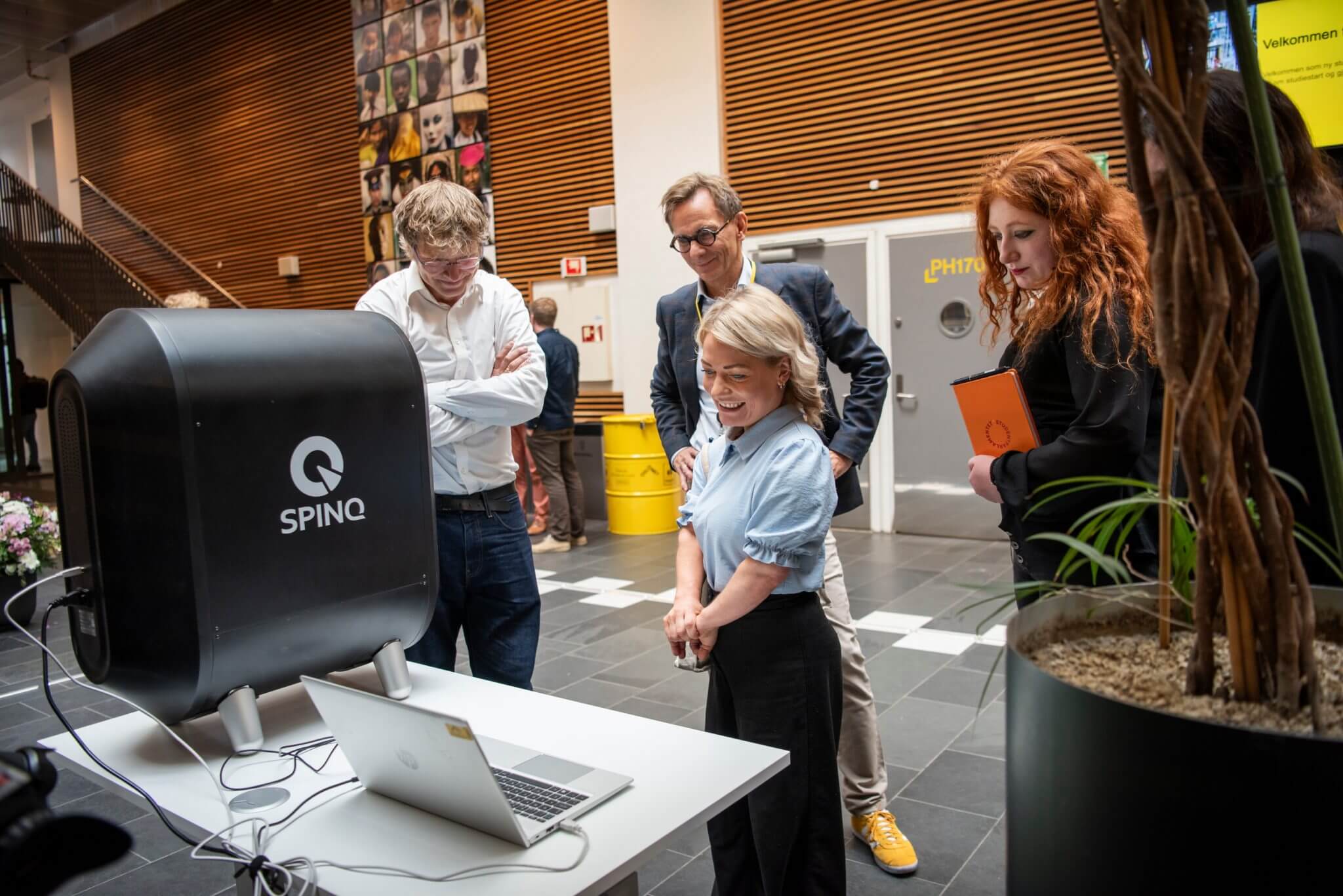
Sandra Borch, Norwegian Minister of Research and Higher Education, expresses high interest in SpinQ's Gemini Quantum Computer
The quantum computing industry has been developing rapidly in recent years, and in the face of a trillion-dollar potential market, many European countries have introduced national quantum strategies, investing heavily in quantum infrastructure and talent development to seize opportunities in this critical period.
In Norway, institutions like OsloMet recognize the vast opportunities of the quantum era. They are advancing the country towards a new quantum age through education and talent cultivation in quantum computing.
Quantum Computers + Quantum Education
"Hands-on Experience is the Key to Talent Cultivation."
OsloMet, one of Norway's largest and most international universities, introduced a "Quantum Information Technology" course for master's students in Applied Computing and Information Technology in 2020. The goal is to integrate information technology with quantum computing, providing students with advanced knowledge in the field and supporting Norway's quantum initiatives.
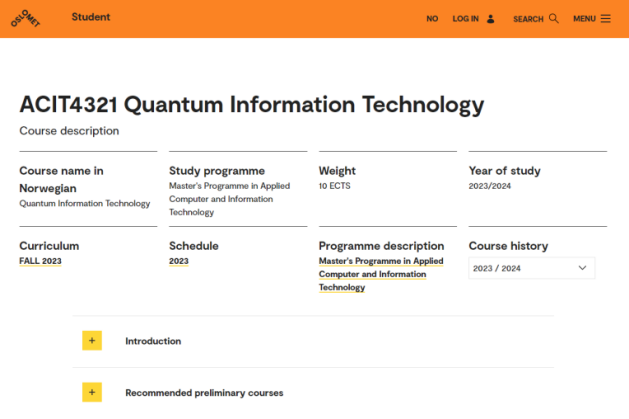
OsloMet University Quantum Information Technology Course Description
Previously, OsloMet relied on cloud-based platforms like IBM Qiskit for their curriculum. Students gained theoretical knowledge but lacked practical experience. Recognizing the importance of hands-on learning, OsloMet acquired SpinQ's desktop quantum computer, SPINQ Gemini, in 2021, allowing students to conduct interactive quantum computation demonstrations.
For OsloMet's educators, having a tangible sense that "quantum computers are real, usable devices and not just mysteries behind the cloud" is integral to the curriculum. Hands-on practice with quantum computers has allowed students to observe real outcomes, distinguishing quantum computing's unique characteristics at the Noisy Intermediate-Scale Quantum (NISQ) stage and aiding in their future planning.
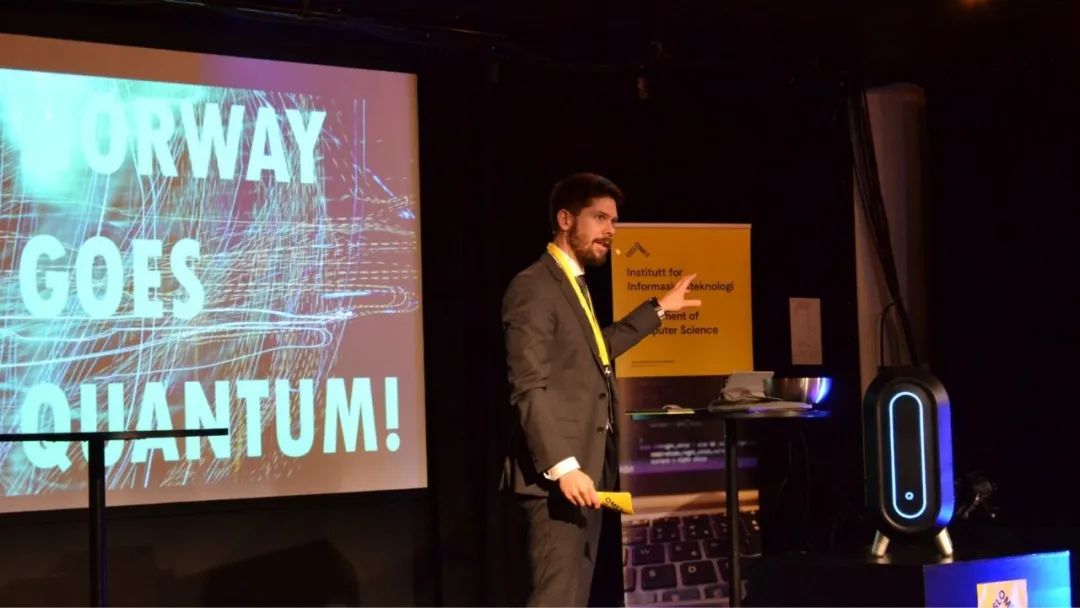
OsloMet University launches its Quantum Programme and unveils Norway's first quantum computer
Quantum Computers + Quantum Research:
Experimental Research Driving Innovative Applications
To meet experimental research needs, OsloMet introduced SpinQ's 3-qubit desktop quantum computer, SPINQ Triangulum, after the SPINQ Gemini. With its ability to overcome certain application limitations of 2-qubit systems, SPINQ Triangulum supports the exploration of more complex problems, such as parametric quantum circuits (PQCs).
OsloMet students have used SPINQ Triangulum for master's research projects on real-world quantum computing, analyzing the implementation of different PQCs through the quantum computer.
The "theory + practice" approach has also had a significant impact on the students' professional development and social relevance.
After completing her degree, Maryam Lotfigolian, an OsloMet MSc student in Applied Computer Science and Information Technology, was hired to work on the Quantum Artificial Intelligence project at Ruter, a Norwegian public transport company, bringing a lot of knowledge about quantum technology and quantum computers to Ruter, trying to incorporate these new technologies into future projects, and exploring with Ruter the role of quantum computing possibilities in practical applications such as the optimal setup of transport checkpoints.
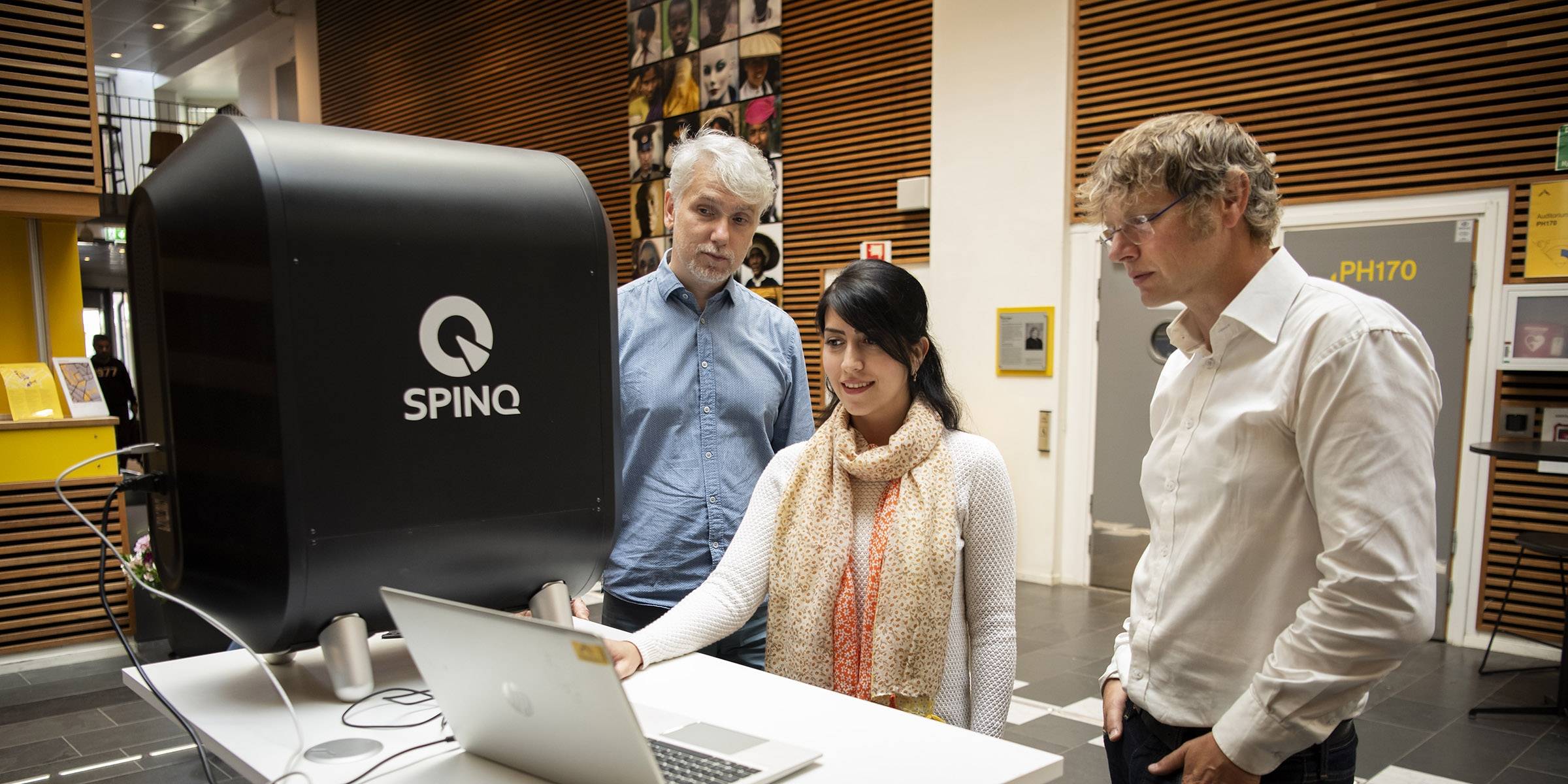
Student Maryam presented her results to the professor using the SPINQ Gemini quantum computer
In addition, OsloMet further promotes peer-to-peer exchanges for academic exploration with the help of quantum computers in volume spinning.
For example, in August 2023, researchers from the Norwegian national oil company Equinor, including mathematicians, physicists, and software engineers, made a special visit to the site to experience first-hand the relevant functions of the desktop quantum computer and exchanged a number of interesting ideas with OsloMet around the prospects for the application of the emerging quantum technology within their company.
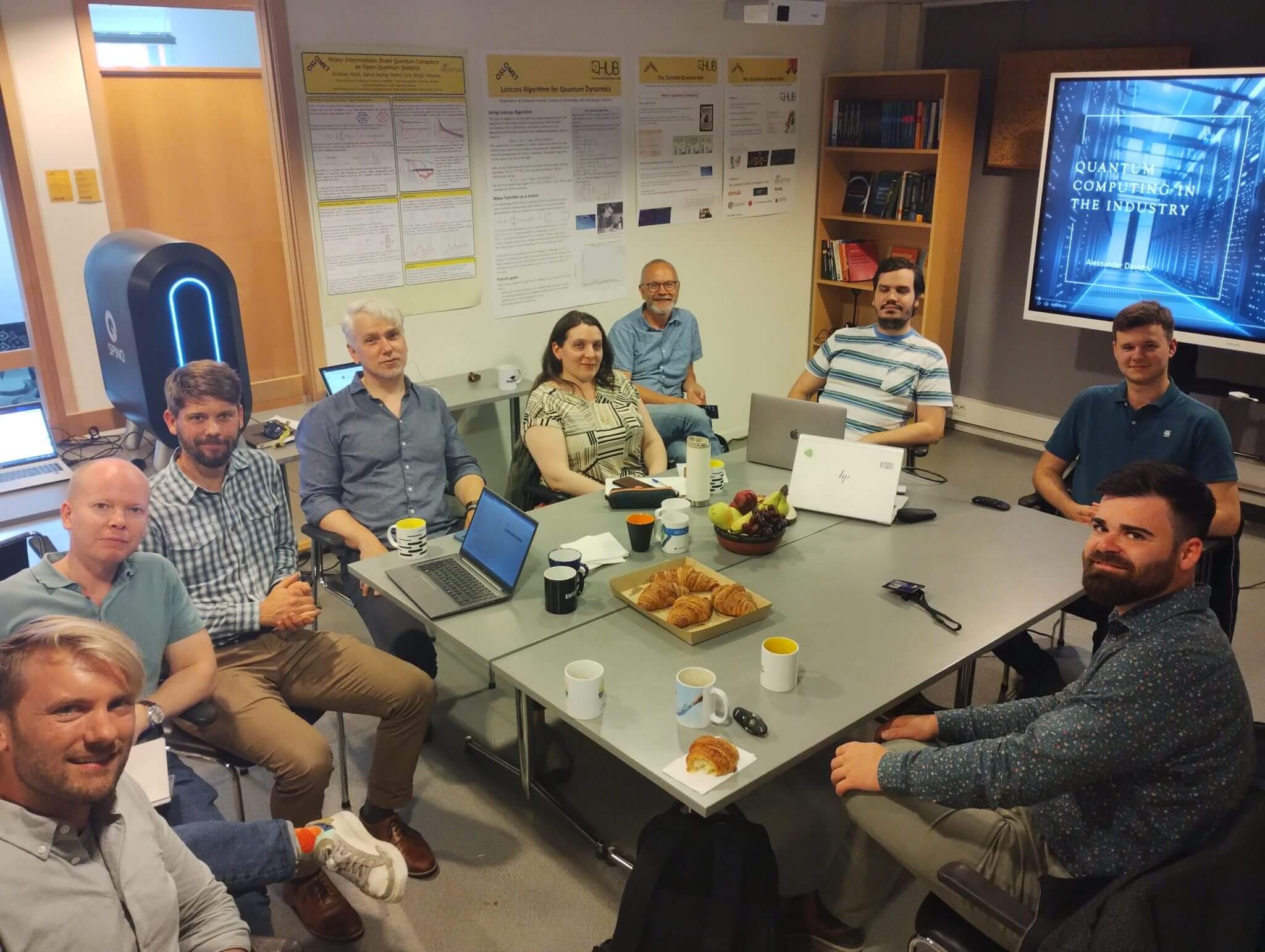
Equinor researchers visit the OsloMet Quantum Centre
Quantum Computer + Quantum Science:
Real Computer Interaction Promotes Quantum for All
In addition to their roles in teaching and research, the SPINQ Gemini and SPINQ Triangulum at OsloMet also serve as "ambassadors" for the Quantum Centre.
Their mission is to promote quantum science by sharing the importance of quantum technology and raising awareness about its significance. Through interactive science outreach, they aim to foster the growth and popularity of quantum computing in Norway.
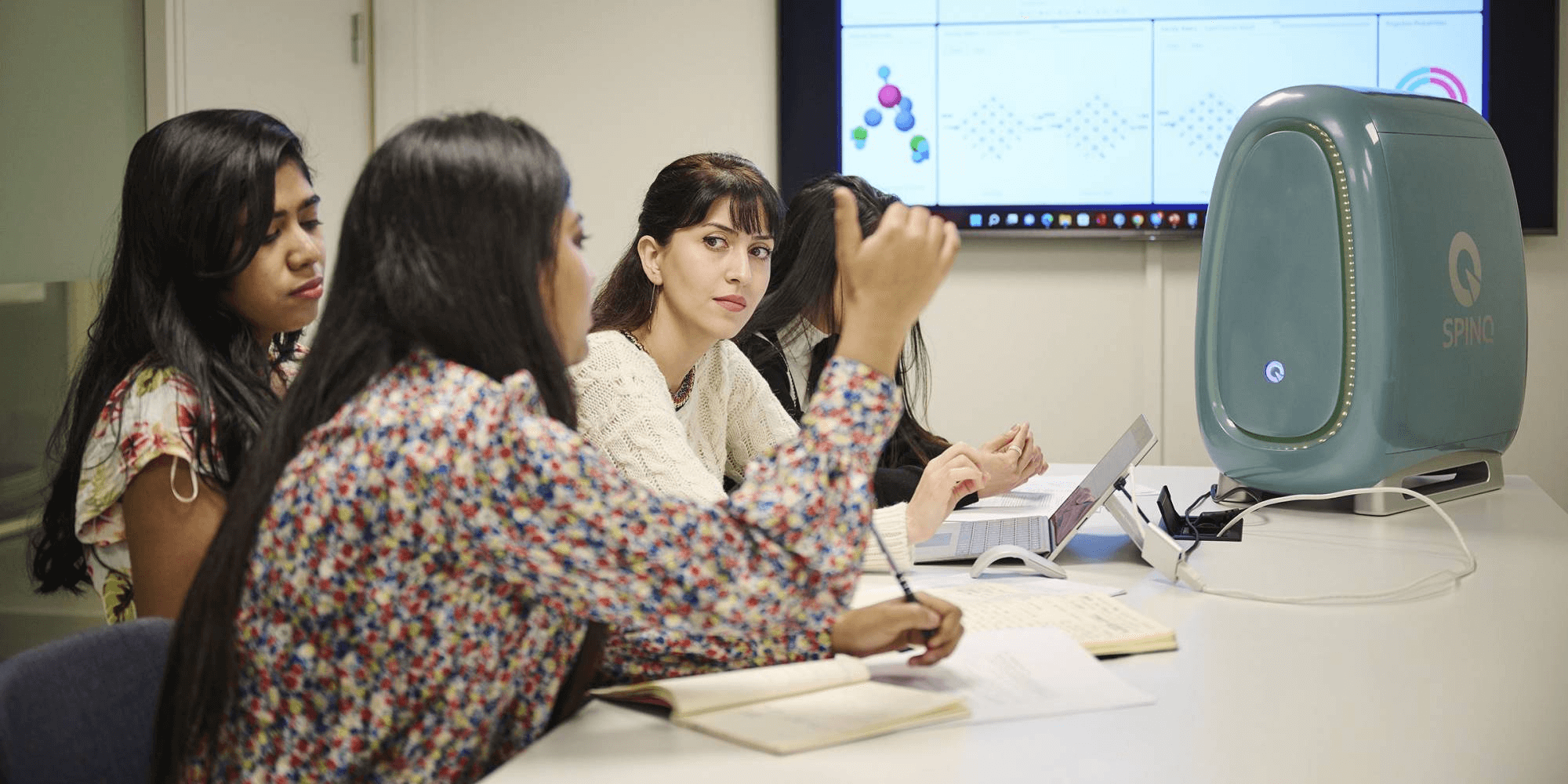
SpinQ Quantum Computer at the OsloMet Quantum Hub
In late November 2023, a group of eager high school students visited the Quantum Hub, where they were introduced to the fascinating world of quantum mechanics. Through a combination of lectures and hands-on practice, students and researchers from the Quantum Hub guided them in exploring fundamental quantum concepts such as quantum superposition and entanglement.
By participating in demonstrations and experiments on a quantum computer, the students gained a deeper understanding of these complex quantum phenomena.
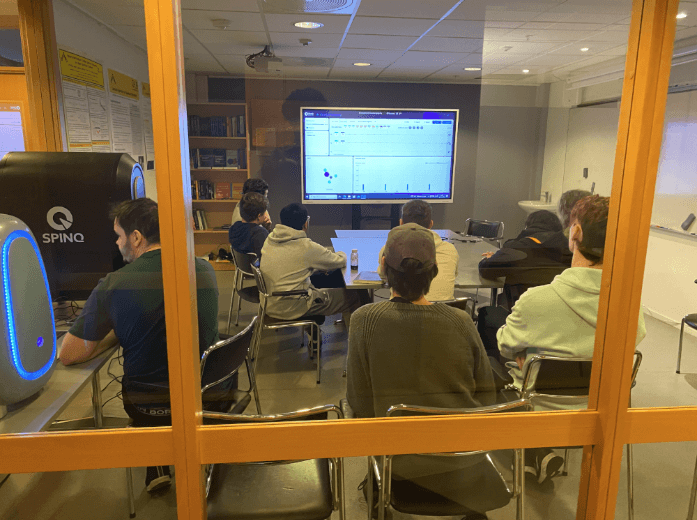
High school students visit the Quantum Hub for a hands-on quantum computing experience
It was reported that many of the visitors were mainly interested in the performance and applications of quantum computers, with a particular focus on how these machines work and how they can be used to solve complex problems or perform specific tasks. In addition, they also expressed concern about the future development of quantum computers and how it will affect more industry sectors.
In the opinion of OsloMet staff, this science outreach based on desktop quantum computers is conducive to bringing potential partners from different academic backgrounds into the new quantum world, thus facilitating more cross-border collaborations and the birth of innovative ideas.
As one of the most important tools in promoting quantum computing education and research, SpinQ's educational quantum computers have been providing attractive solutions to universities and research institutes around the world through product innovation and service improvement since their launch.
In the future, we are looking forward to working with more partners, from quantum education, and quantum research to quantum popularisation and other dimensions, to help the universal development of quantum technology, so that more people can see the new world of quantum computing in the future.
Contact Us

